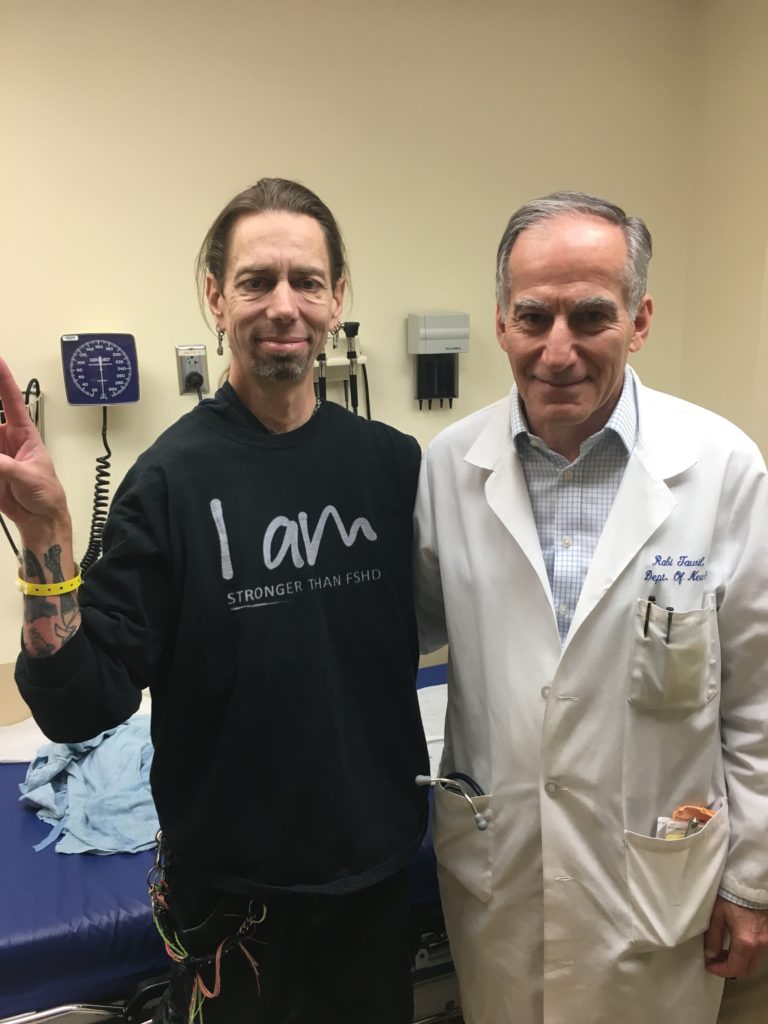
To crack the code of FSHD, patients are absolutely essential
All of the breakthroughs—the discovery of the genetic causes, understanding why some patients vary so greatly in the severity of their symptoms, teasing out the biochemical pathways that could point to future treatments—were made because patients stepped up to the plate.
Too often, we hear patients say they’ll volunteer when there’s a treatment. But we will never get to a treatment unless patients participate in fundamental research now. FSHD is uniquely human, so no laboratory mouse can ever fully model the disease. The genetic “package” that causes FSHD is found only in people. We owe an enormous debt to the patients who give DNA samples. Who submit to long interviews and exhausting physical tests. Allow a surgeon to cut out a small muscle sample. Who fight claustrophobia to lie in the narrow bore of an MRI machine.
Equally important are patients’ family members, both affected and unaffected, who provide the best experimental controls because of their shared genetic and environmental backgrounds. A parent or sibling who has very mild symptoms may hold the key to understanding the factors that protect against the full-blown development of FSHD symptoms in a more severely affected family member.
We are more hopeful today than ever before that a treatment is within sight. We cannot guarantee when that treatment will arrive, but here’s one thing we guarantee: If you volunteer for research, your participation will without question help move us a step closer to that day.
Scientific Overview of FSHD
Read the latest on wikipedia
Glossary of Scientific Terms
Acceleron plans to launch Phase 2 FSHD trial this year
According to a Boston Business Journal story, Cambridge, Massachusetts-based biotech Acceleron Pharma has plans to test its ACE-083 compound in facioscapulohumeral muscular dystrophy patients in a phase 2 clinical trial later… Read More »
Update on Early-Onset FSH Muscular Dystrophy Study
Insights on symptoms, biology, and quality of life By Yi-Wen Chen, PhD and Jean Mah, MD While most people with FSHD develop muscle weakness during late teen years or adulthood,… Read More »
Biology 101 for understanding the CRISPR research
Peter Jones, PhD, and Charis Himeda, PhD, found themselves unexpectedly in the media spotlight last week after publication of their paper on the application of CRISPR technology in FSHD cells. In… Read More »
Washington Post features FSH muscular dystrophy story
Today’s Washington Post featured a report on work by a research team that was described in an FSH Society press release. The Post story, “How CRISPR could lead to a cure for… Read More »




